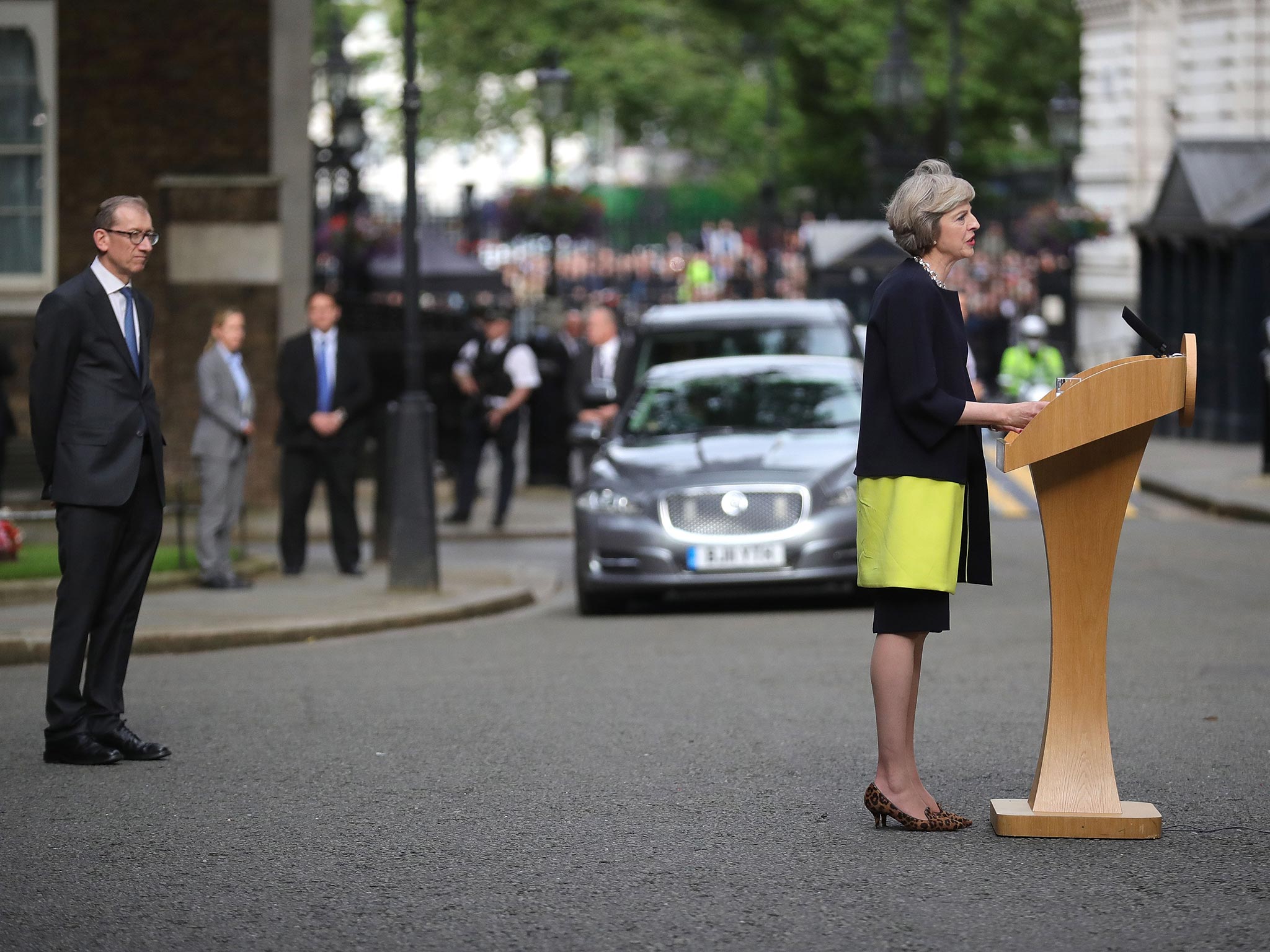Living wage won’t hit £9 an hour, warns Resolution Foundation think tank
Foundation warns Theresa May’s ‘backsliding’ will be costly for millions of low-paid workers

Your support helps us to tell the story
From reproductive rights to climate change to Big Tech, The Independent is on the ground when the story is developing. Whether it's investigating the financials of Elon Musk's pro-Trump PAC or producing our latest documentary, 'The A Word', which shines a light on the American women fighting for reproductive rights, we know how important it is to parse out the facts from the messaging.
At such a critical moment in US history, we need reporters on the ground. Your donation allows us to keep sending journalists to speak to both sides of the story.
The Independent is trusted by Americans across the entire political spectrum. And unlike many other quality news outlets, we choose not to lock Americans out of our reporting and analysis with paywalls. We believe quality journalism should be available to everyone, paid for by those who can afford it.
Your support makes all the difference.The so-called “national living wage” will fail to reach the Government’s target of £9 an hour by 2020, a report warns.
And it will fall further short – leaving some full-time workers up to £1,000-a-year worse off – if ministers listen to the pleas of business leaders to weaken the flagship policy.
The warnings come from the Resolution Foundation think tank, which has urged Theresa May that “backsliding” on the living wage (NLW) will be costly for millions of low-paid workers. Watering down the popular policy would also fly in the face of the new Prime Minister’s pledge, on the steps of Number 10, that helping struggling families will be a key aim of her government.
Conor D’Arcy, the Foundation’s policy analyst, said: “Understandably some businesses are unhappy about a higher minimum wage, particularly amid the post-referendum uncertainty. But backsliding on the Government commitment is unnecessary, given the in-built flexibility of the policy to adjust to changing economic circumstances. It would also be costly for millions of low-paid workers, so the Prime Minister should stick to her guns.”
When then-Chancellor George Osborne unveiled the NLW, in July last year, he said he was making a “promise” that it would reach £9 an hour at the end of the decade.
The commitment lessened criticism that the higher floor – although a big boost to the existing minimum wage – was far less than voluntary rate set by campaigners, in line with the true cost of living.
That hourly rate is already £9.40 in London and £8.25 in the rest of the country – and will be uprated again next month.
But the Resolution Foundation said its analysis, based on the latest independent economic forecasts, showed the NLW is currently on track to rise to only around £8.70 in 2020.
The reason is predictions of weaker wage growth, although the Foundation said the projected figure for 2020 is likely to rise and fall as wage forecasts are updated and the impact of implementing Brexit becomes clear.
However, last month, 16 trade associations wrote to the Business Secretary, Greg Clark, calling on the Government to “exercise caution” in light of “the economic uncertainties the country faces”.
The business leaders were arguing for the plan to hike the NLW in order for it to reach 60 per cent of median earnings by 2020 to be dropped, in favour of smaller increases.
The Foundation said this implied increases in line with those applied in the past to the national minimum wage, which rose by just 1.7% in the four years following the 2008 financial crisis.
If so, the value of the NLW in 2020 would be only £8.17 an hour – which would be 55p an hour less than the latest economic forecasts suggested, equivalent to £1,075 to a full-time worker.
But the fact that the NLW automatically adjusts to economic shifts, by being pegged to typical hourly pay, meant it already had the “in-built flexibility” it needed.
However, it was the “£9 cash figure that many people associate the policy with”, the think-tank said.
Join our commenting forum
Join thought-provoking conversations, follow other Independent readers and see their replies
Comments